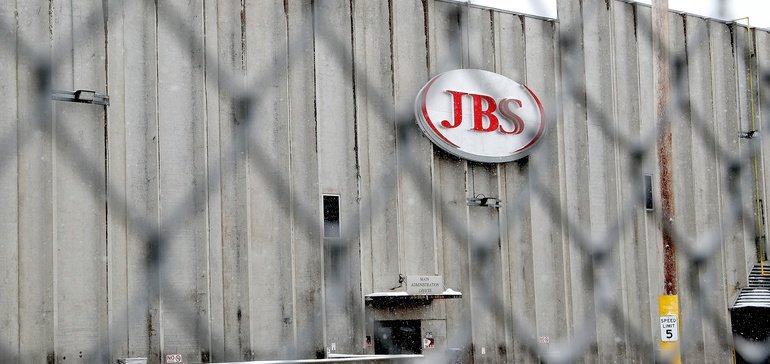JBS USA names new CEO amid executive reshuffling

Dive Brief:
- Tim Schellpeper has been named the next CEO of JBS USA as part of a reshuffling of the executive ranks at its parent company, Brazilian meat giant JBS SA. Schellpeper, who has served as CEO of JBS USA Fed Beef since 2017, will assume his new position overseeing the U.S. and Australian subsidiary in January and report to outgoing JBS USA CEO Andre Nogueira. Steve Cohron, current head of pricing and sales at JBS USA Fed Beef, will become CEO of JBS USA Fed Beef.
- Nogueira will share the newly reinstated position of global president of operations for JBS SA with Wesley Batista Filho. Nogueira, who has served as JBS USA CEO since 2013, will oversee North America operations while Filho will lead Latin America and Oceania, and JBS SA’s global plant-based business.
- JBS SA said it was making the changes in response to its expansion into new businesses and geographies, and sustainability commitments. The meat sector has seen a series of executive changes in the past year at players including Tyson Foods and Smithfield Foods as the industry wrestles with supply and demand issues, price-fixing lawsuits and protecting worker safety during the pandemic.
Dive Insight:
JBS USA’s decision to place Schellpeper, who has more than 30 years’ experience in the industry, at the helm offers a smooth transition from Nogueira and signals a strategy focused on growth and increased investments. Before joining JBS, Schellpeper worked for 25 years at Smithfield-Farmland Foods, becoming both CEO and COO. He also served as CEO for two years at Maschoff Family Foods, an Illinois-based pork company. Maschoff told local press in 2015 that Schellpeper was uniquely qualified to lead its company because of his farming background.
This experience is key as JBS and its competitors continue to navigate a highly turbulent period for the meat industry. JBS USA has seen an immense spike in demand since the start of the pandemic, announcing in June that it is spending $130 million to increase its beef capacity. This is as meat giants like JBS continue to face worker shortages, and look for ways to retool and meet demand for their products.
The industry is also looking to improve their public image amid wide-scale price-fixing lawsuits, which continue to work their way through courts. JBS USA recently paid $24.5 in compensation to direct purchasers of pork products for damages in a suit.
These changes in leadership could also help facilitate a new era for JBS as it hopes to weather the industry-wide storms. In a press release, global CEO of JBS Gilberto Tomazoni said the company had reinstated its global president of operations role and made the other leadership shifts with an eye to its future.
“We have reinstated this structure to ensure our focus on operational excellence, people and our culture, and better prepare our company to pursue our sustainability and growth strategy, while preserving independence and speed in decision making across our global businesses,” he said.
This year, JBS USA has focused on sustainability amid growing criticisms of the beef segment’s carbon emissions, announcing that it will tie executive pay to the company’s ability to hit environmental goals. It also aims to achieve net zero greenhouse gas emissions by 2040 and plans to invest $100 million by 2030 in R&D projects focused on regenerative farming.
Source: fooddive.com

